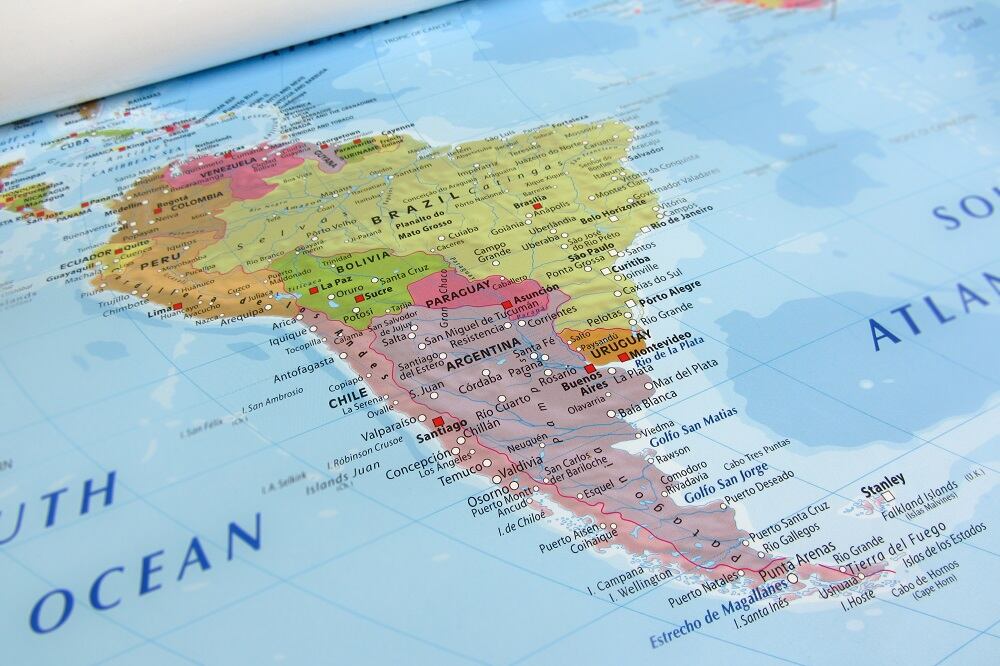The annual event may take place on 16th October, but it's a campaign of commitments and actions that occur all year round. This year’s World Food Day promotes the importance and meaning of zero hunger, which focuses on nourishing people and nurturing the planet.
“Zero hunger goes beyond hunger”, Food and Agricultural Organization of the United Nations (FAO) says in its World Food Day promotional video. “It means enough nutritious food for everyone, everywhere.”
Hunger, health and hope in 2019
Encouraging everyone to take action, this year, World Food Day is urging everyone, including the government, private sector, countries, farmers and individuals to consider what we are eating, and to ensure healthy and sustainable diets are both affordable and accessible to all.
The FAO states that globalization, urbanization, and income growth have drastically transformed our diets and eating habits in recent decades. As such, we have turned to unhealthy diets that are high in refined starches, sugar, fats, salt, processed foods, meat and other animal-source products. Unhealthy diets coupled with spending less time on meal preparation at home, reliance on fast-food and takeaways, and sedentary lifestyles have influenced the deterioration of global health.
There are over 670 million adults and 120 million girls and boys (5-19 years) that are obese, and over 40 million children under 5 that are overweight, statistics reveal. The impact of treating health problems caused by obesity and unhealthy lifestyles totals up to $2 trillion every year.
Overweight and obesity, and hunger and malnutrition often co-exist. Over 820 million people, approximately one in nine, are suffering from hunger. Different forms of malnutrition can also occur within the same household and even the same individual during their lifetime and can be passed from one generation to the next, the FAO emphasizes.
In total, malnutrition including obesity affects almost one in three people, with that figure expected to rise to one in two in just over five short years, by 2025. World Food Day contributes to the conversation, initiatives in place, and actions designed to address these numbers and deploy greater global commitment.
To overcome the current nutritional crisis, the FAO explains that we need to take action for our future to enable definite and positive changes to take place. Ultimately, “our way of producing, supplying and consuming food has to change”, the FAO reveals.
“From the farm to the plate, our food systems currently favor production of high-yielding staple crops. In addition to the impact on our diets, intensified food production, combined with climate change, is causing a rapid loss of biodiversity.”
Speaking the Sustainable Development Goals language
Internationally, the “language of hunger” is raising its profile to mirror the crisis of our global diets and food systems. This language has been influenced by the implementation of the 17 Sustainable Development Goals (SDGs) that countries embraced in 2015 to end poverty and hunger, protect the planet and ensure prosperity for all.
The Zero Hunger goal, otherwise known as SDG2, sets out the need to end hunger and achieve food security by improving access to nutritious food while using sustainable agricultural methods.
As the UN Decade of Action on Nutrition FAO jointly leads the implementation of the UN Decade of Action on Nutrition (2016-2025) with the World Health Organization and in collaboration with other UN agencies and partners, in 2016, the UN General Assembly called it the nutrition decade.
The aim of the nutrition decade is to enhance unified action to reduce hunger and improve nutrition globally while supporting countries in their individual commitments to further nutrition efforts.
Brazil and Ecuador, along with Italy, were the first countries to make commitments to achieve the Zero Hunger goal.
Recommendations and efforts
World Food Day recognizes the founding of the Organization of the United Nations (FAO) in 1945 and holds events in over 150 countries around the globe. The aim of these events is to make calls for worldwide awareness and action on hunger and other forms of malnutrition, and to promote the importance of food security and healthy diets for every person, everywhere.
For people living around the world, FAO strongly encourages people to focus on three core elements that make up the recipe for a healthy life: diet, planet and choices.



